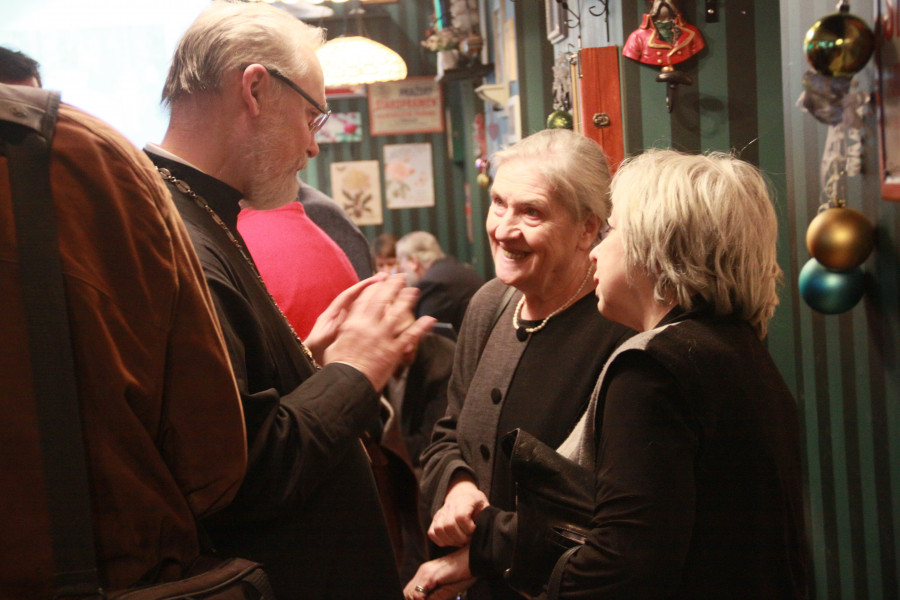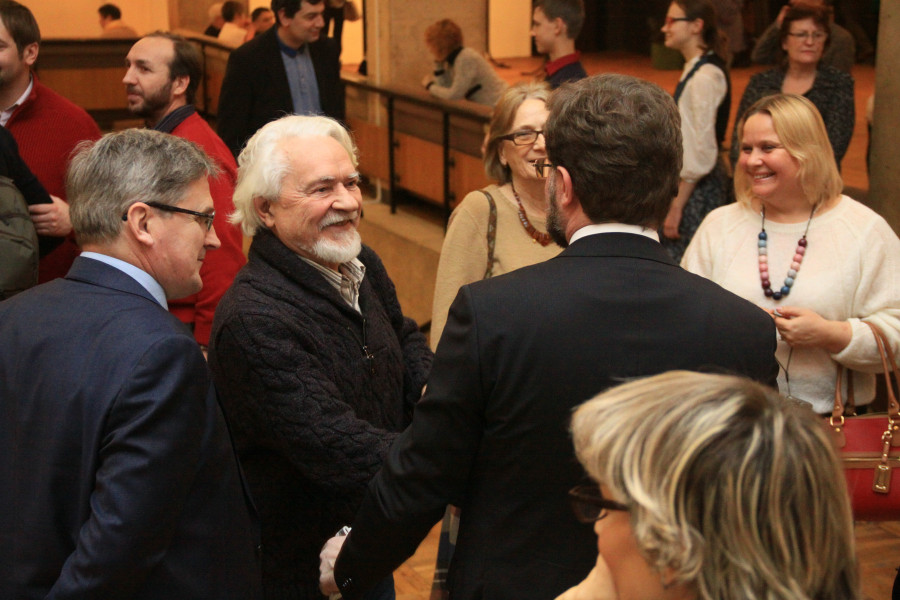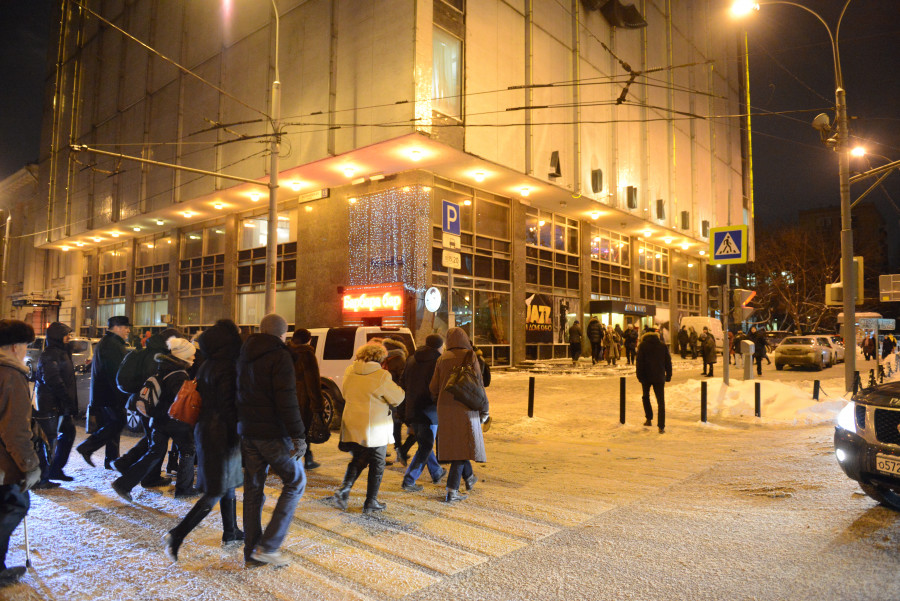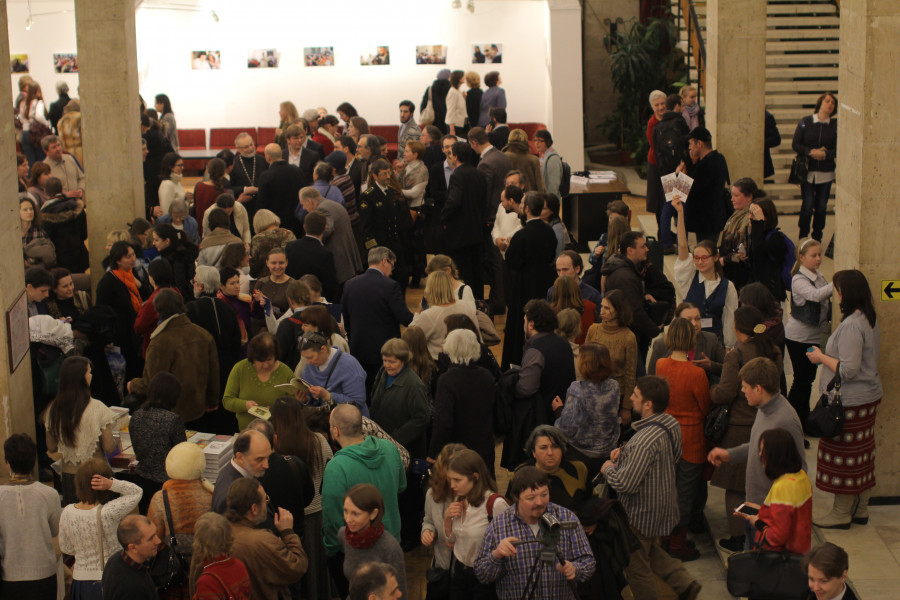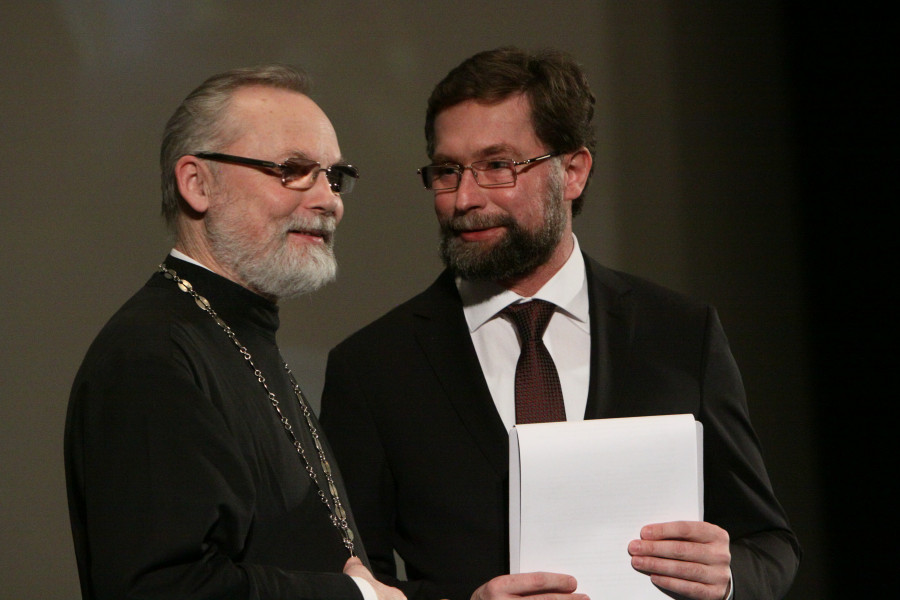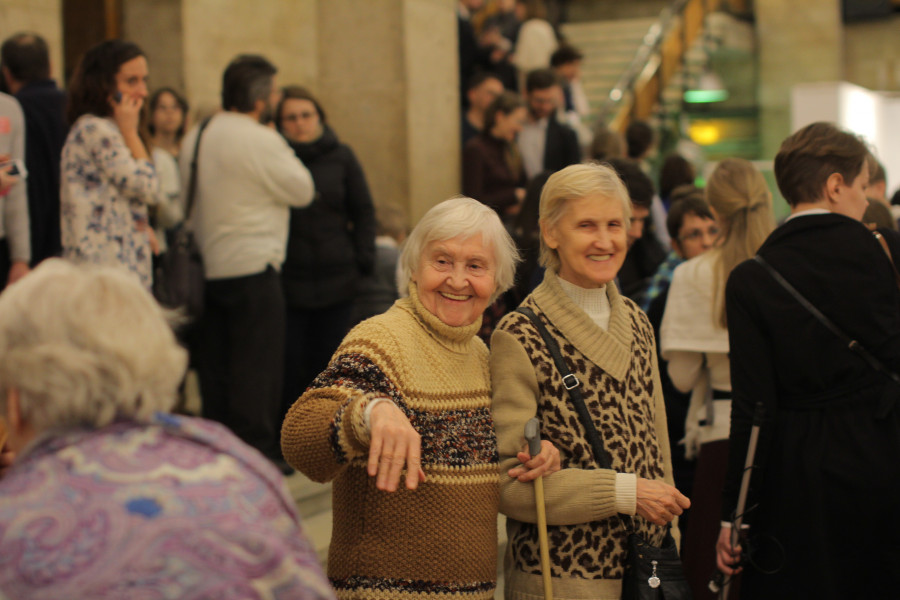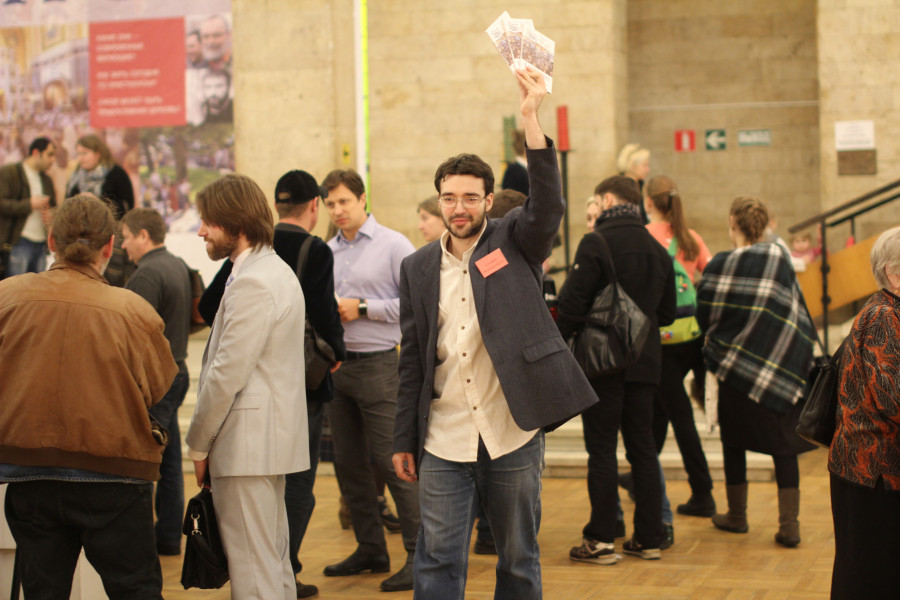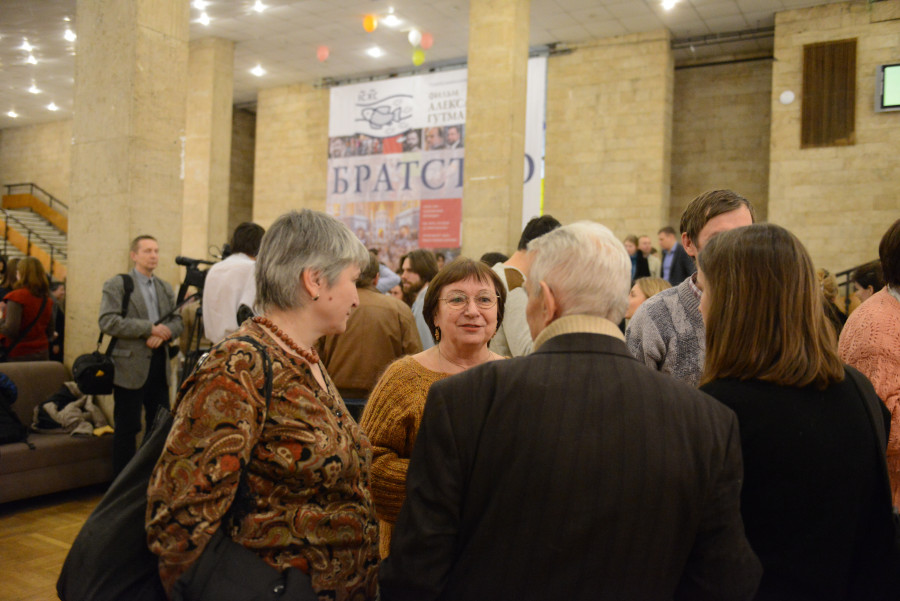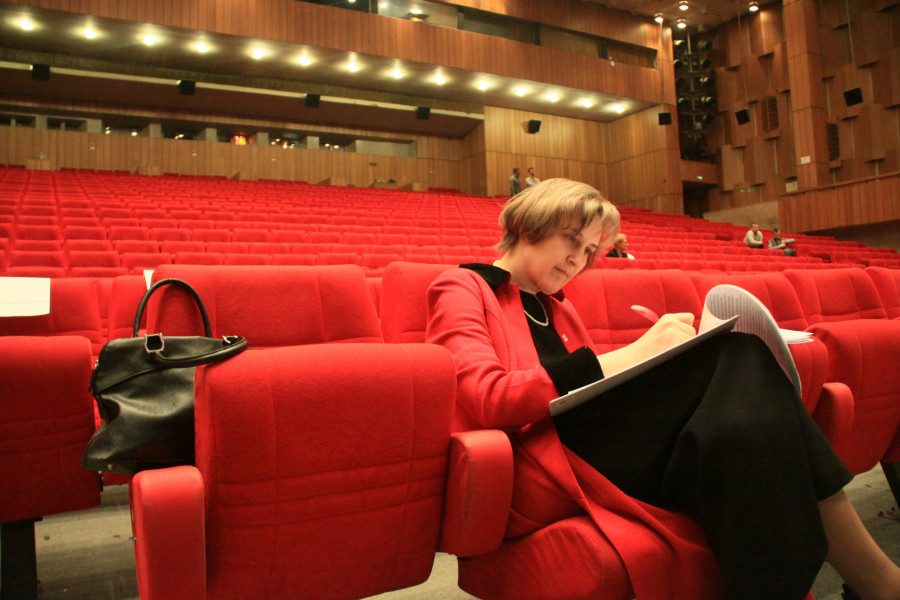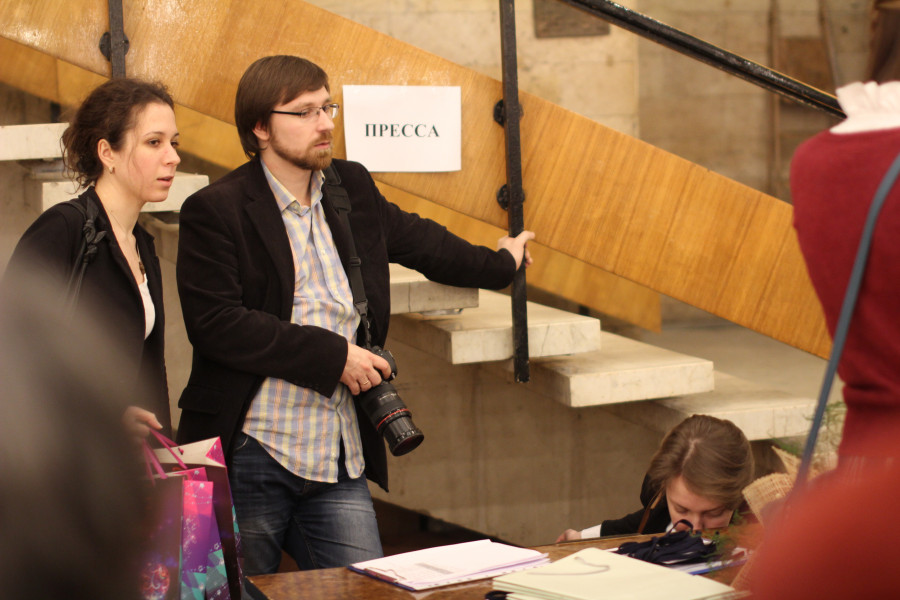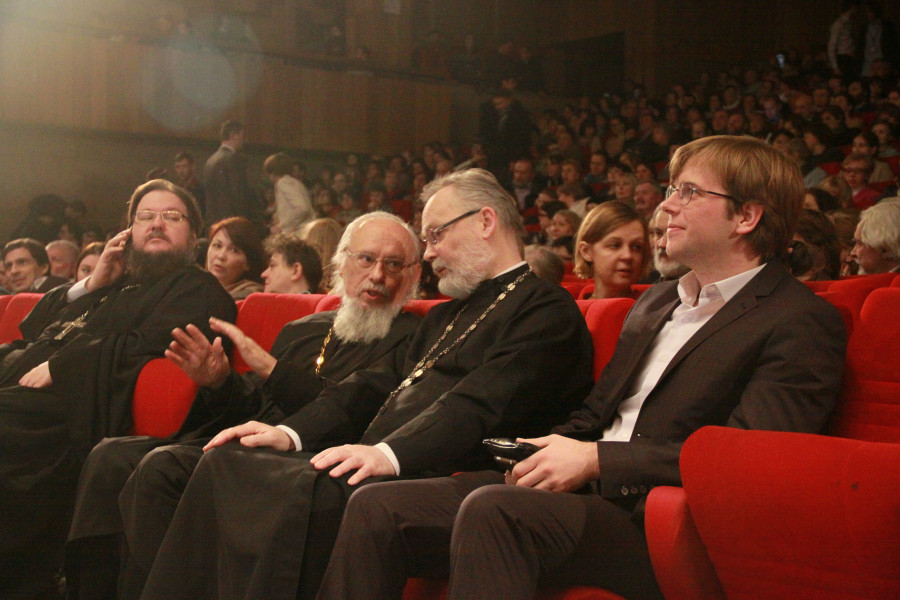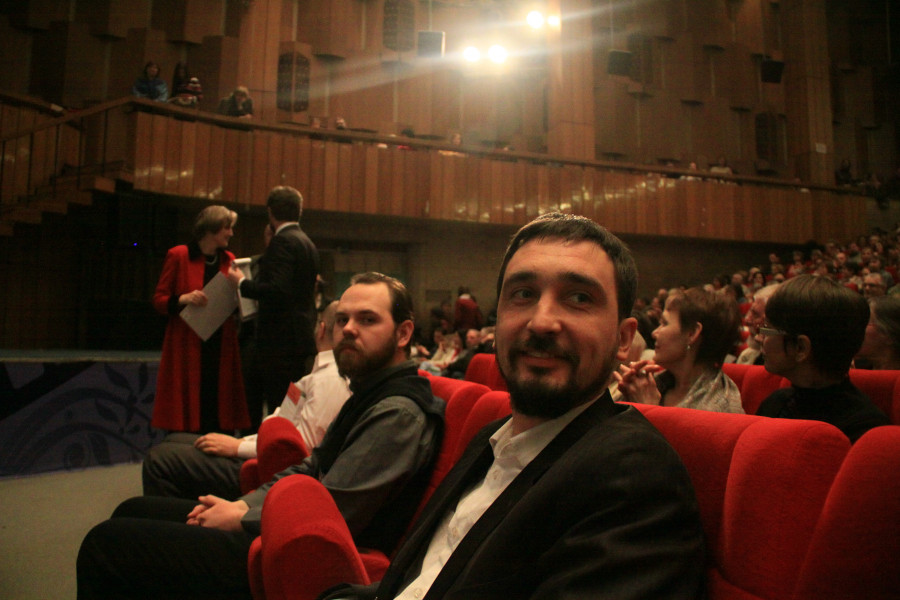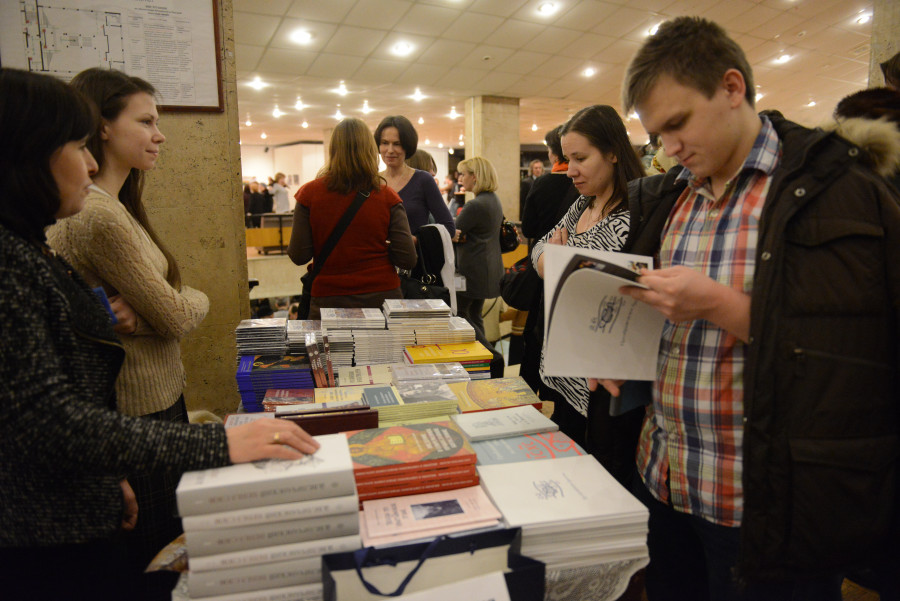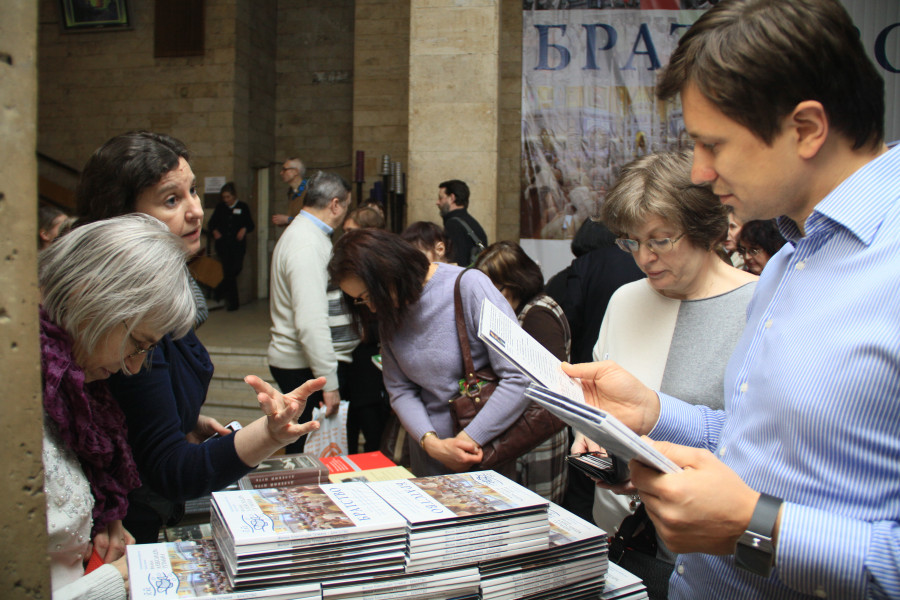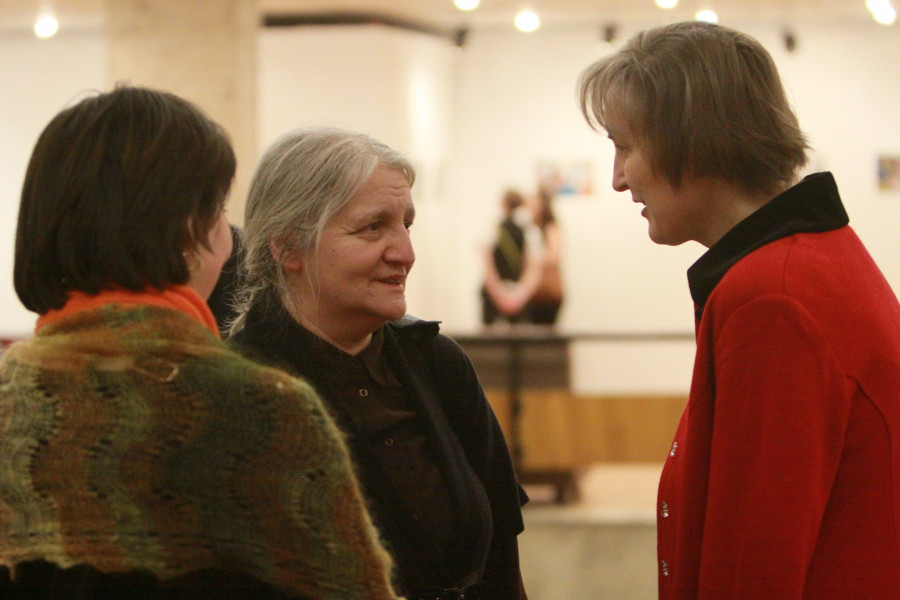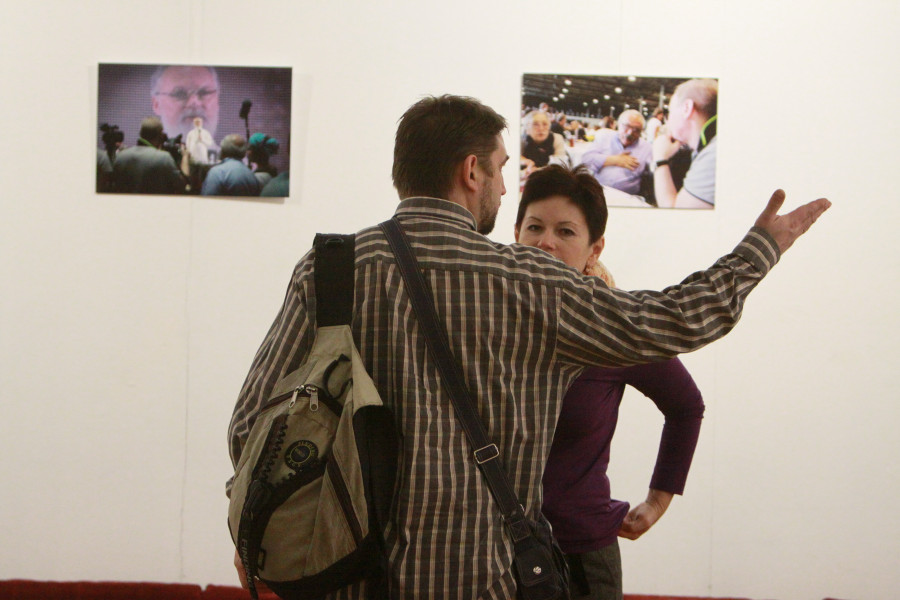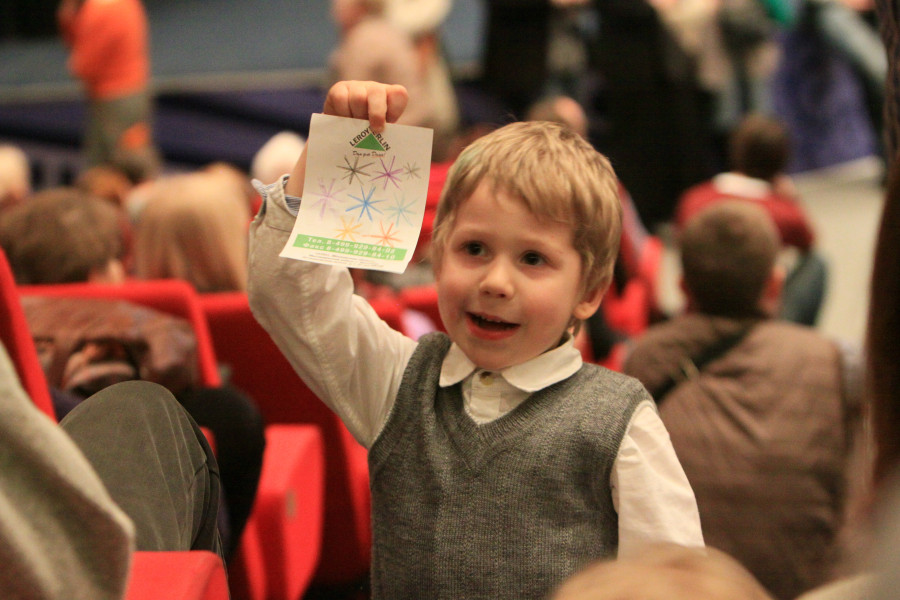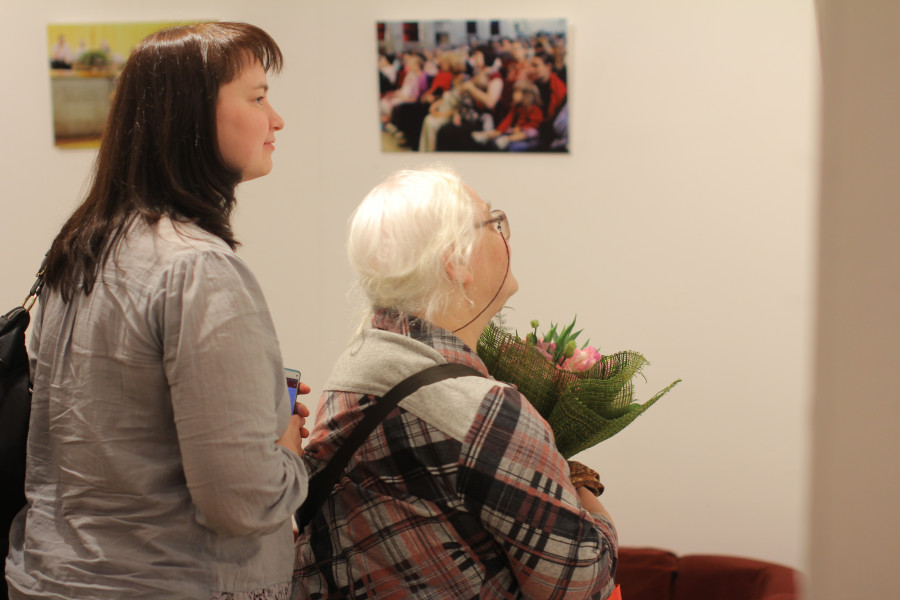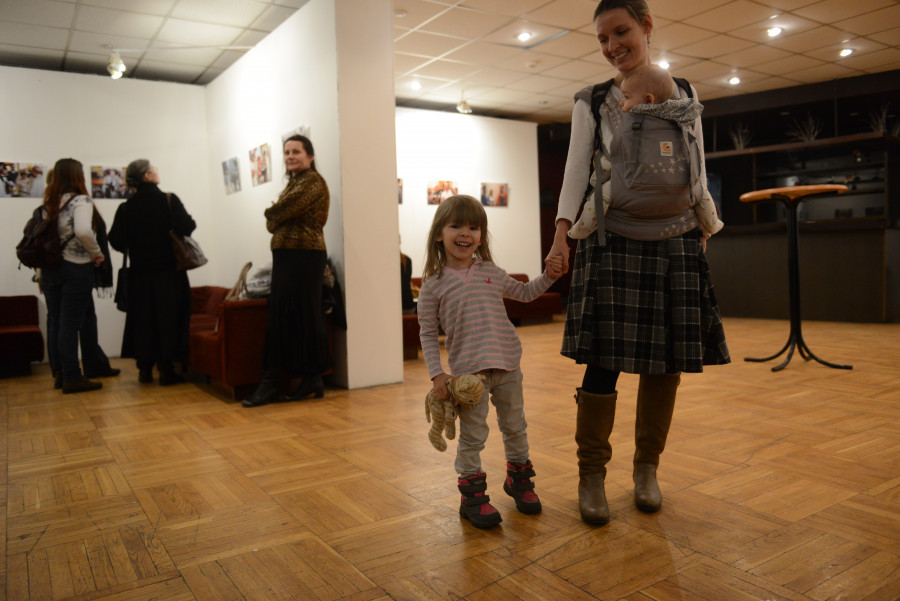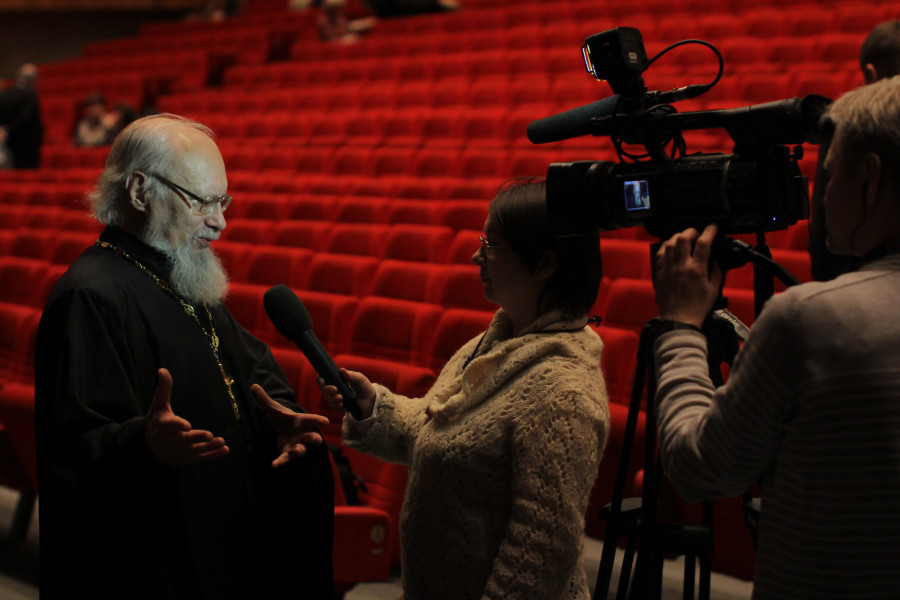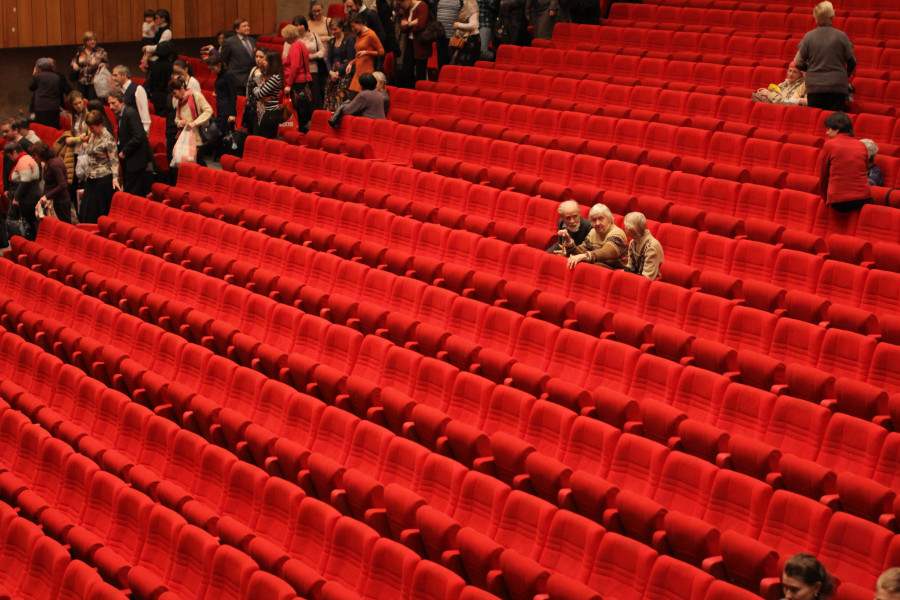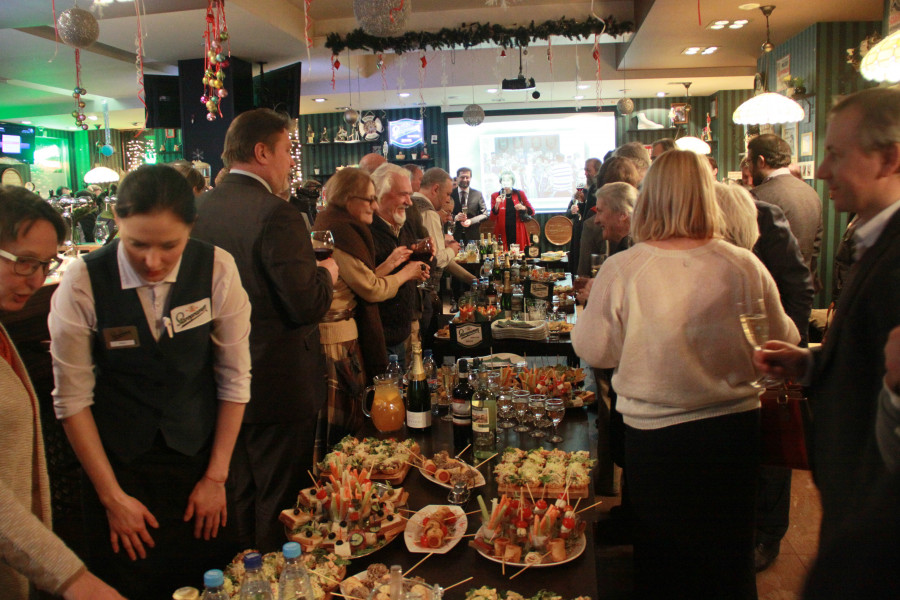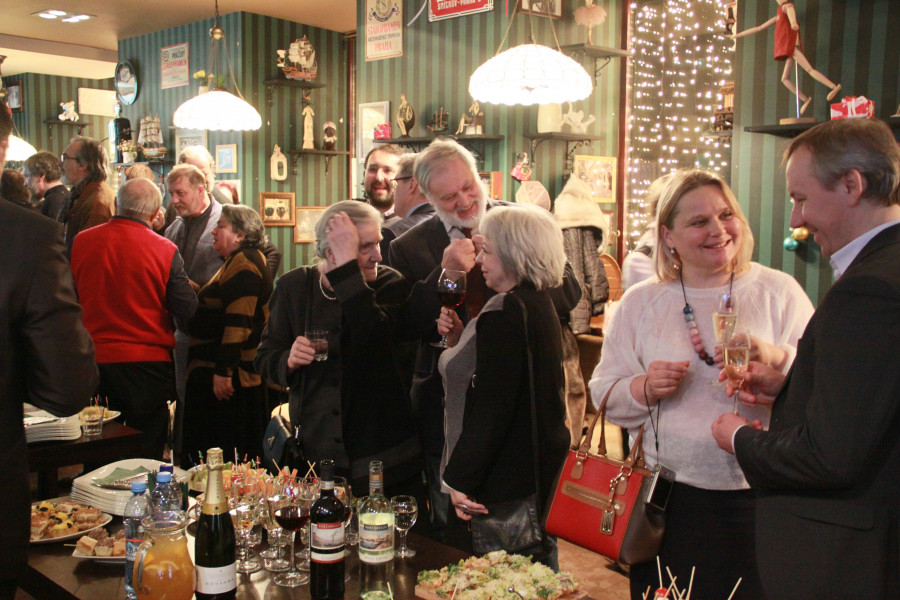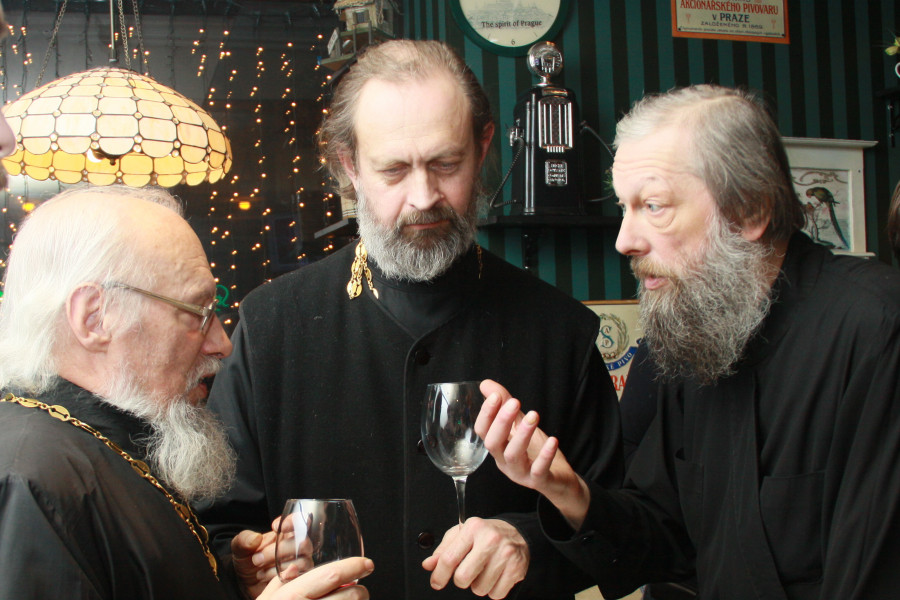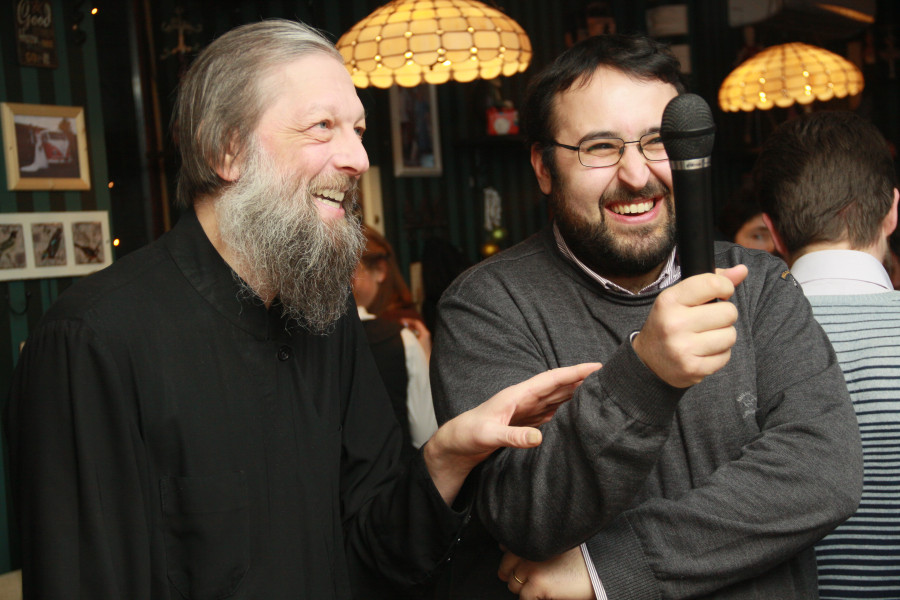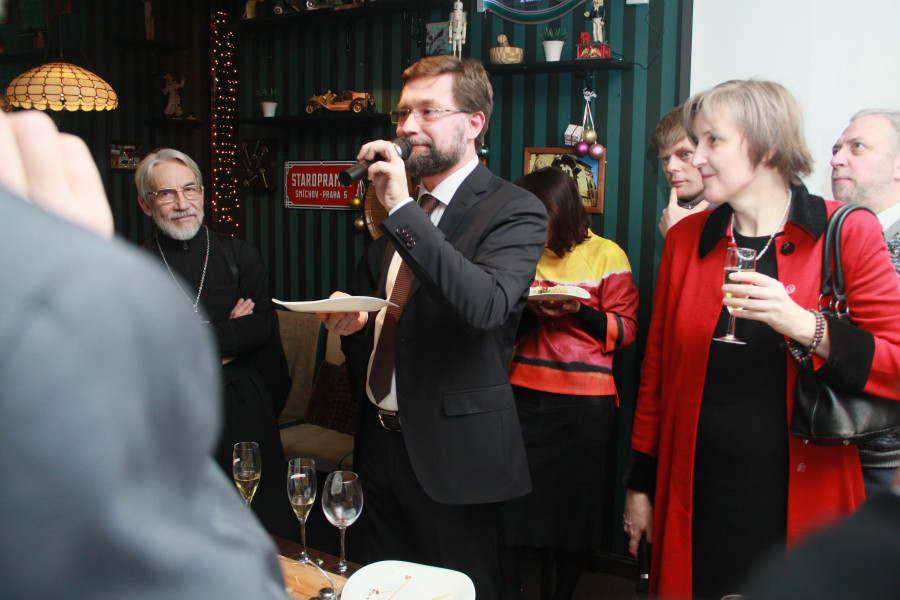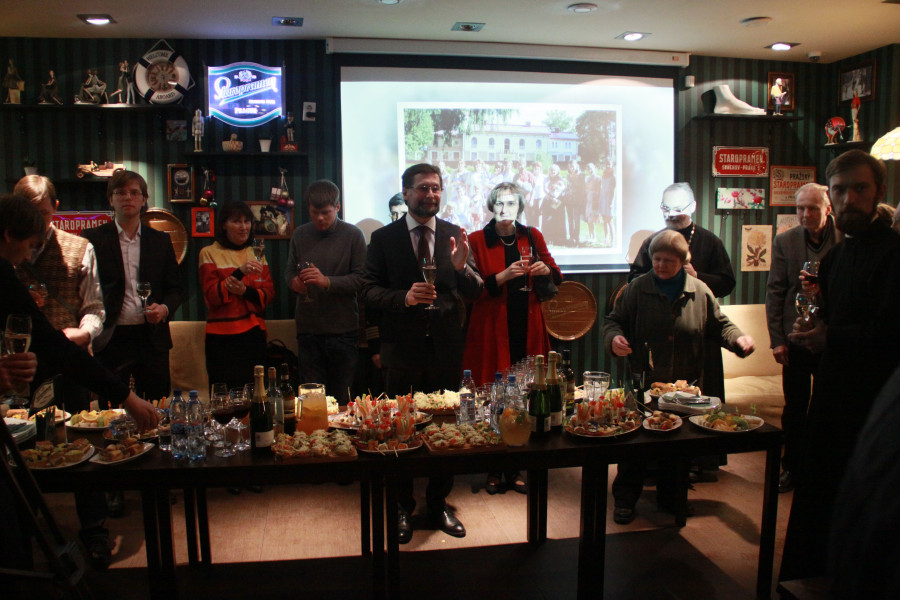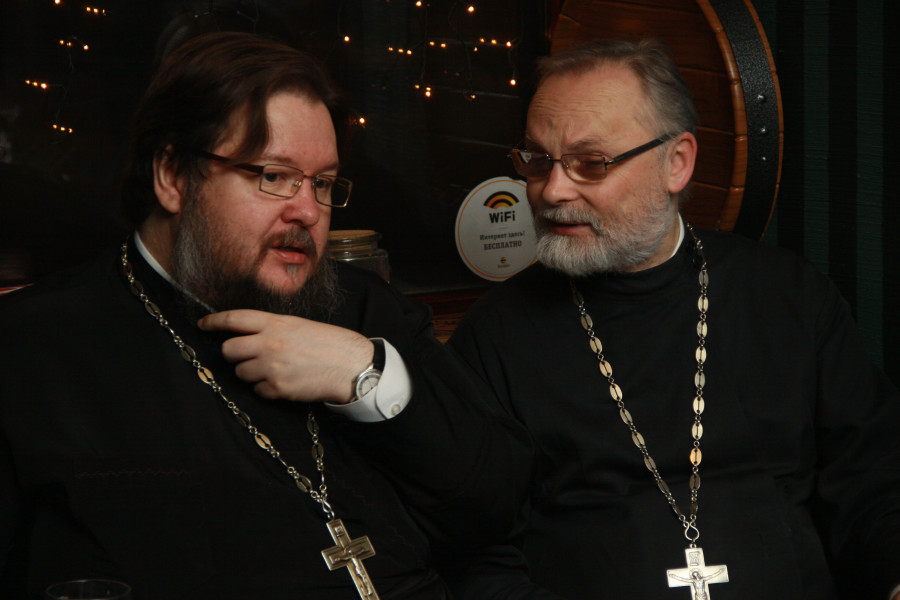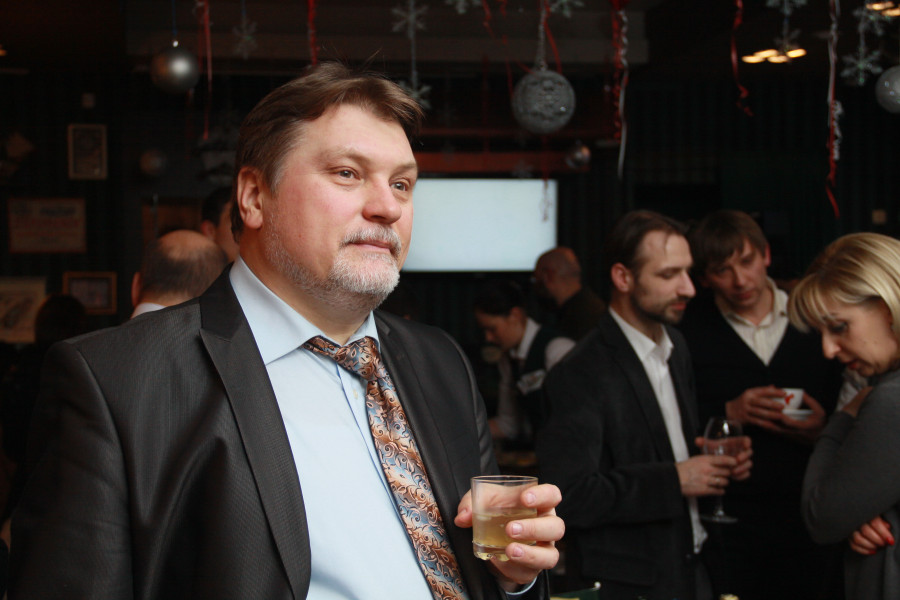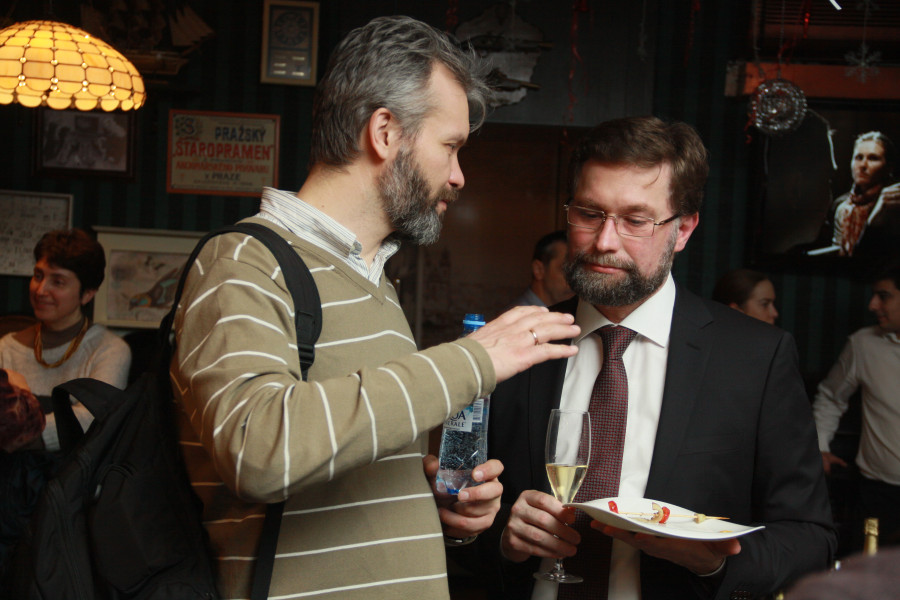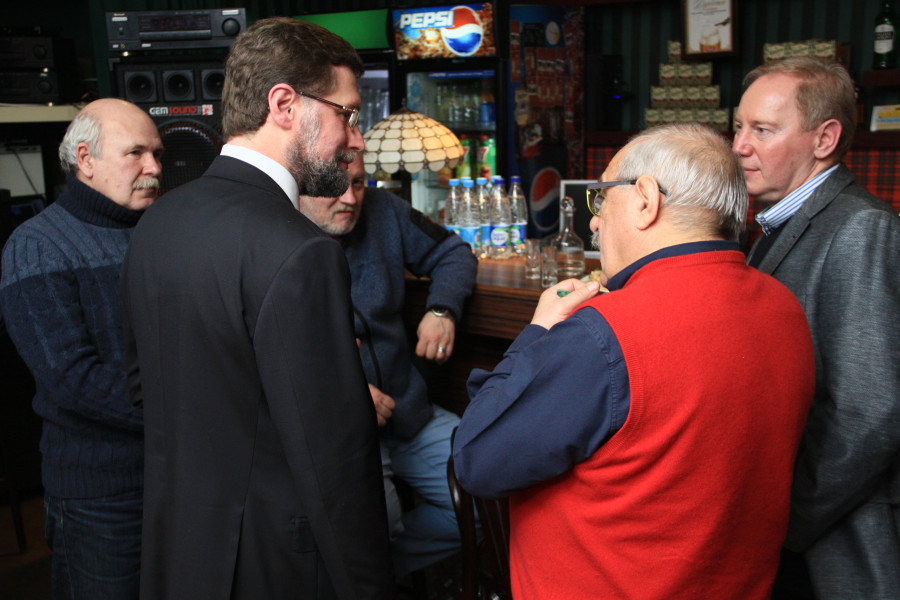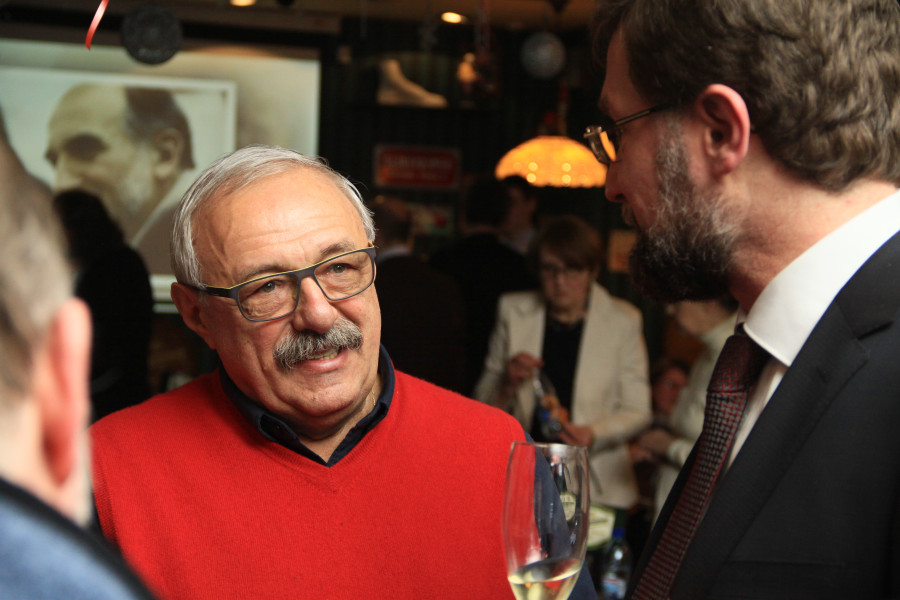“Brotherhood” – A Unique Documentary
The Grand Hall at the House of Cinema was filled beyond capacity by all those who wished to attend the premiere of the film made for the 25th anniversary of the Transfiguration Brotherhood, which was celebrated this past year.
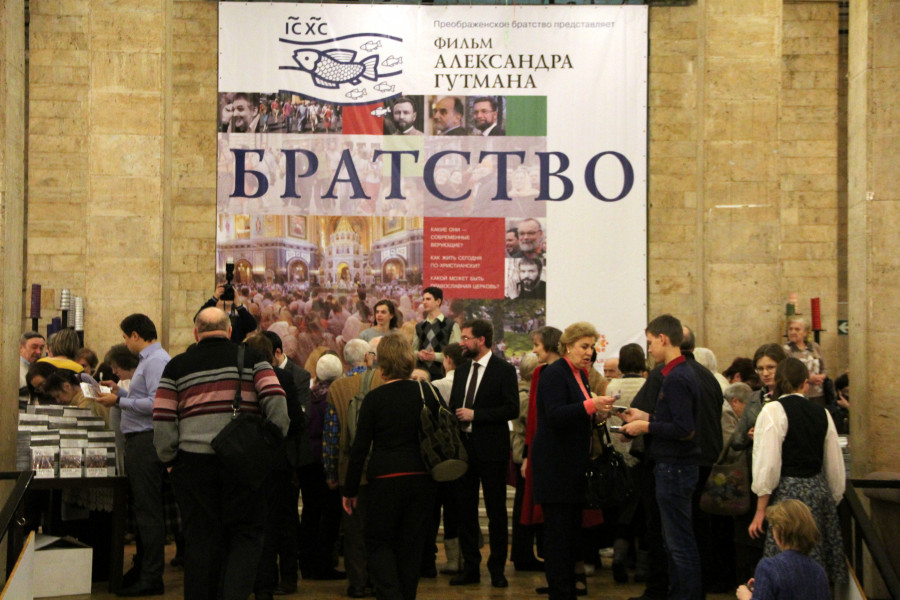
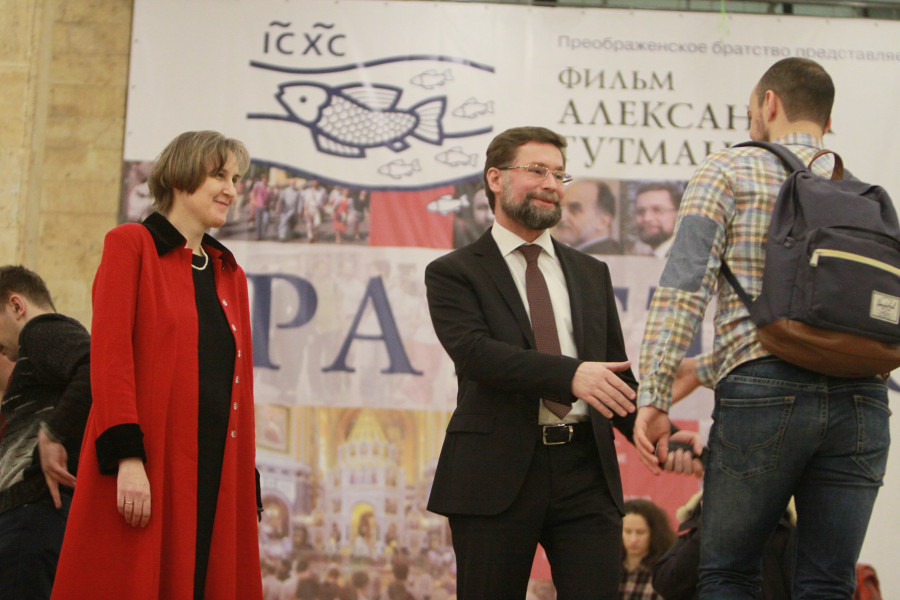
The 45-minute film features the everyday life of members and friends of the Transfiguration Brotherhood, including its founder Fr Georgy Kochetkov, Chairman Dmitry Gasak, Archpriest Vitaly Borovoy, the academic Sergey Averintsev, poet Olga Sedakova, actor Sergey Yursky, and many others. Gutman shows us children's camps, exhibitions, conferences, and festivals held by members of the Brotherhood in different cities, as well as classes at St Philaret’s Institute, prayers, meetings and holiday celebrations.
Dmitry Gasak, the Brotherhood’s Chairman, explains where the film idea came from:
“It occurred to us that the 25th anniversary was a perfect occasion to bear witness to the experiences of living in sobornost and Christian unity that the Lord has given us over the years. We wanted to share these things within the church and with society at large, but know that “if I testify about myself, my testimony is not true.” We decided, therefore, to request help from non-members of the Brotherhood who are of the highest professional quality, hoping that they might see things that escape the notice of an insider.”
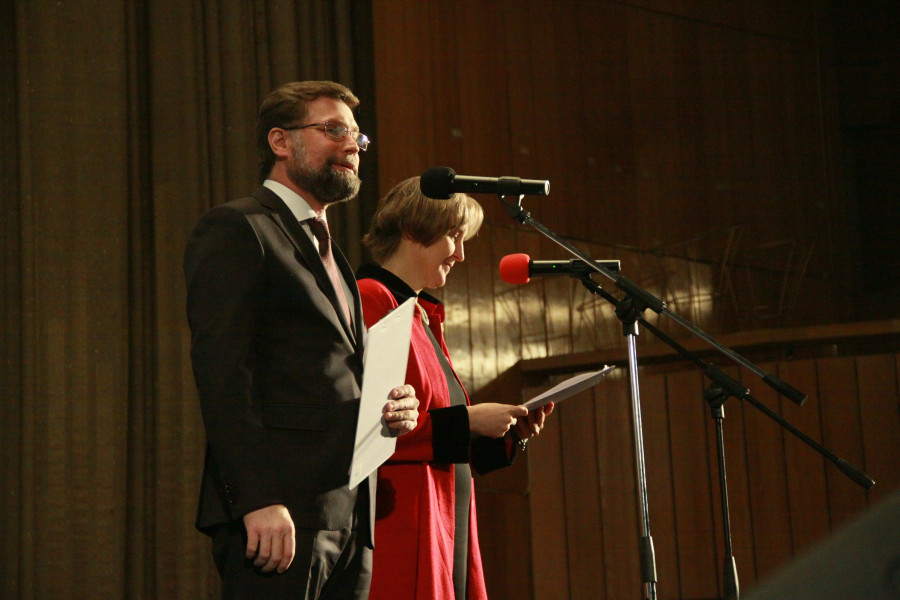
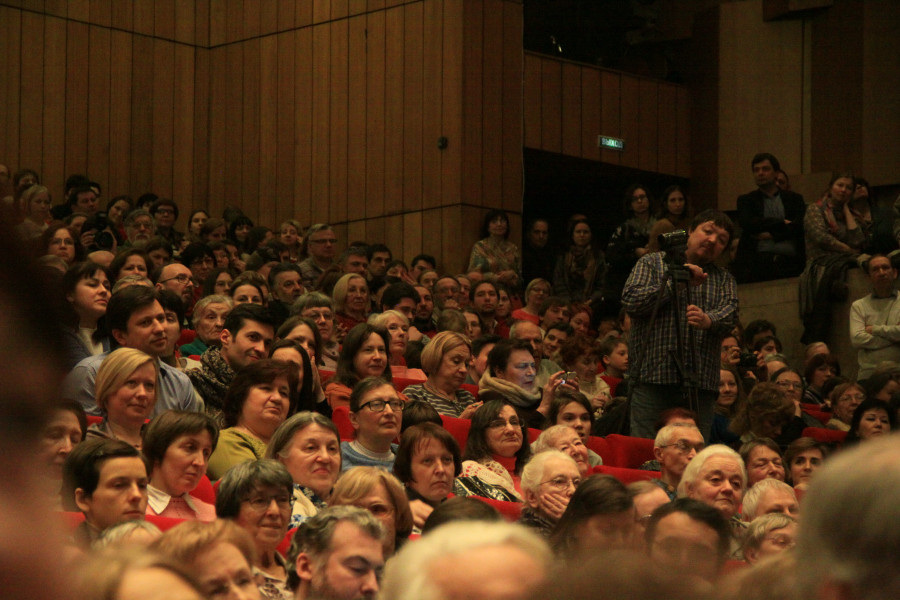
“We granted complete freedom to the artist letting him look, listen and delve into the life of the Brotherhood. We hoped to hear a living echo – a clear sound free of any ideological constructs,” added Yulia Balakshina, Chairperson of The Minor Orthodox Brotherhood of St Peter. “The artist managed to pose the question of what the phenomenon of brotherhood is in its essence. It is not by chance that in Russia brotherhood has been so often pondered over and longed for. One can find remarkable lines about brotherhood in the writings of Alexander Pushkin and Alexey Khomyakov, Fyodor Dostoyevsky and Vladimir Solovyov. In the idea and the image of brotherhood there has always been something particularly attractive and dear to the hearts of the Russian people.”
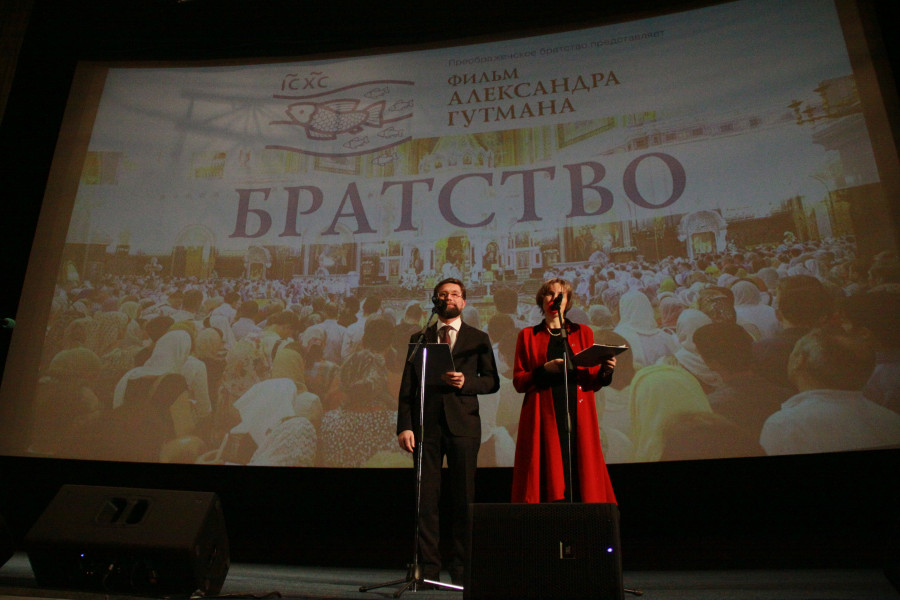
Alexander Gutman was not a random choice for this co-operative project. The Transfiguration Brotherhood made his acquaintance around 15 years ago, in circumstances surrounding the abolition of the death penalty in Russia. The Brotherhood watched and discussed his films ‘Three Days and Never Again,’ ‘The Sunny Side of the Road,’ and ‘August 17th’. The ensuing dialogue between director and audience turned out to be so interesting and fruitful, that viewers decided to turn the camera on themselves.
“This project was particularly difficult for me because I don’t have any personal tie to the life of the Brotherhood,” said Gutman. But first impressions are very important. I remember that when I showed the film ‘Three Days and Never Again’ for the Brotherhood, I was amazed at and touched by the shining faces and animated eyes I met with at that particular viewing. When the Brotherhood made me the offer to shoot a documentary, I realised that I would be spending the coming months of my life with people whom I find particularly attractive and engaging. Over the past year, I have lived inside this project and greatly enjoyed the work. I think I can say the same of my colleagues.”
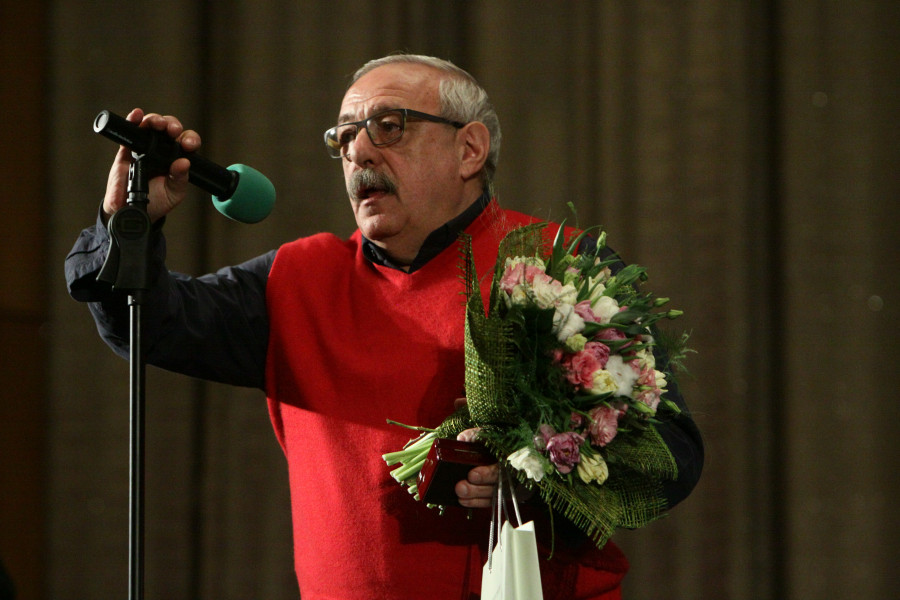
The film director brought his own creative team to the project: scriptwriter and co-author Natalia Mikova, nationally-decorated artist and co-director Sergey Litvyakov, and camera man Yury Yermolin.
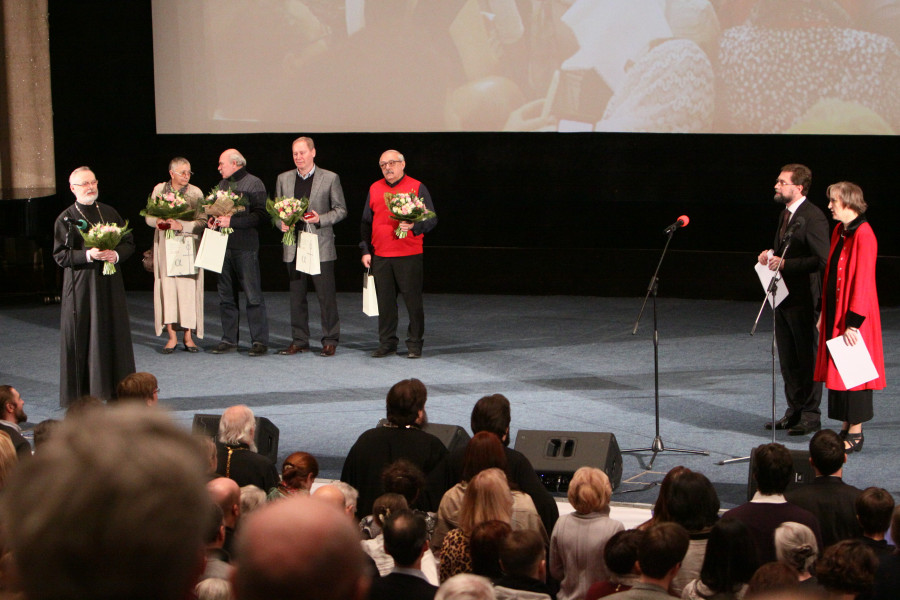
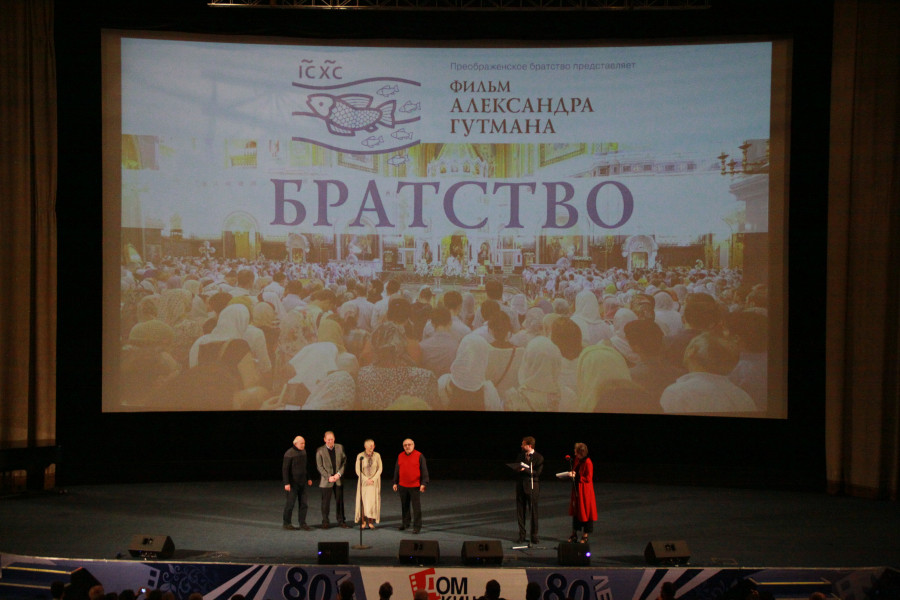
The audience was greeted by the Reverend Professor Georgy Kochetkov, the founder and spiritual father of the Transfiguration Brotherhood and Rector of St Philaret’s Christian Orthodox Institute.
“It seems to me that many of the misunderstandings which have occurred in the past arose out of the fact that people didn’t know anything about the Brotherhood and had quite forgotten the rich history of brotherhood life in Russia – a history which dates back to the 15th century,” said Fr Georgy. “And now not only our Brotherhood and others – inside or close to the church – will have the opportunity to recall our history, but anyone who may be interested. It is impossible to live in our country without brotherly bonds and community relationship. We should be calling people to live in community and brotherhood in the same way as we call them to fulfill God's will.”
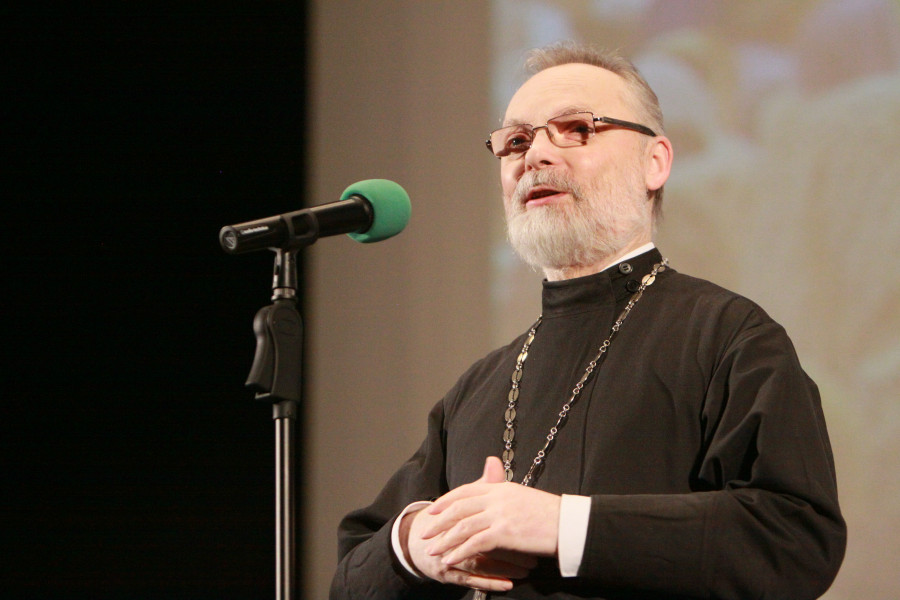
“One final word on today: the fact that this film is about brotherhood should have the effect of gathering the church together, and we can already observe this. The film brings together those who care about our Lord God, His will, His way and His revelation – those who are ready to conform their lives to Him. And this principle of gathering, rather than dividing – is the most important thing. I hope very much that this film will – again and again – exert this gathering influence in our lives,” he added.
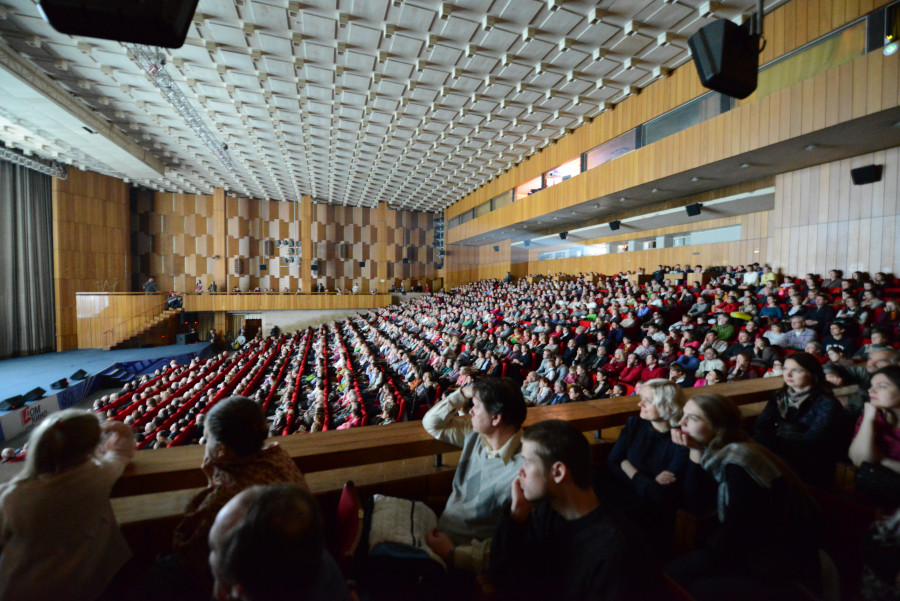
After watching the film, Dr Alexander Melik-Pashayev shared his first impressions. Dr. Melik-Pashayev heads the Lab which studies the Psychological Difficulties inherent in Artistic Development at the Institute of Psychology of the Russian Academy of Education. In his view, the film makes a great contribution to overcoming alienation and the gap between spiritual/religious and secular culture:
“Here we see that music, philosophy and the psychic life of people themselves – as they attempt to grow – are enlightened and supported from a spiritual, religious perspective. It would be good if as many people as possible watched this film and began to think in this way, overcoming this futureless, dangerous and very harmful gap.”
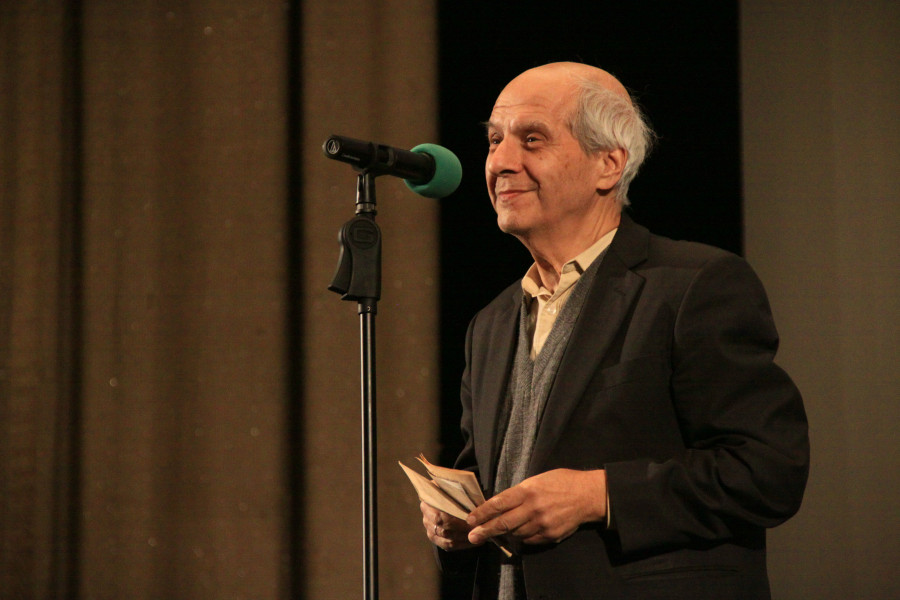
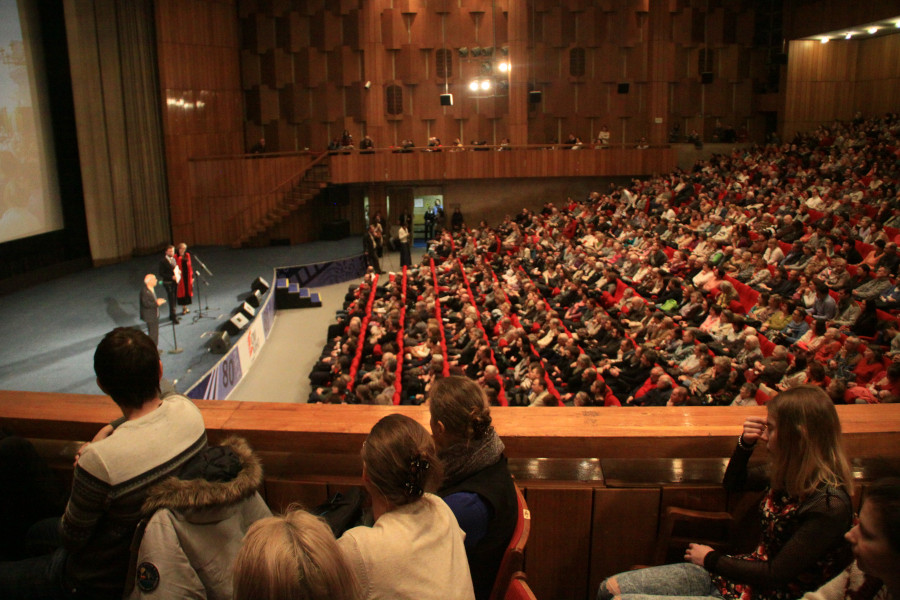
Abbot Serapion (Mit’ko), the Vice Chairman of the Synodal Mission Department of the ROC, and Director of the M. A. Programme at Belgorod Theological Seminary, remarked that the film is “a very artistic documentary”, which is not only informative and encouraging, but also very gratifying. He addressed the Transfiguration Brotherhood as a Christian family whose members actively bear witness to Christ and to the Church:
“I think that the fact that this Grand Hall is filled to capacity even though it is more spacious than many large churches, suggests that the Transfiguration Fellowship of brotherhoods has brought an immense number of people to Christ... I believe that each of those who are present here will also create his or her Christian community – his or her own family. If every Christian would pursue mission and would bring his or her neighbour to church at least once a month, our entire country would have become “church” over these twenty-five years. I wish you every success in continuing to be fruitful and multiply in the spiritual field and in bringing people to Christ, filling their hearts with grace and love.”
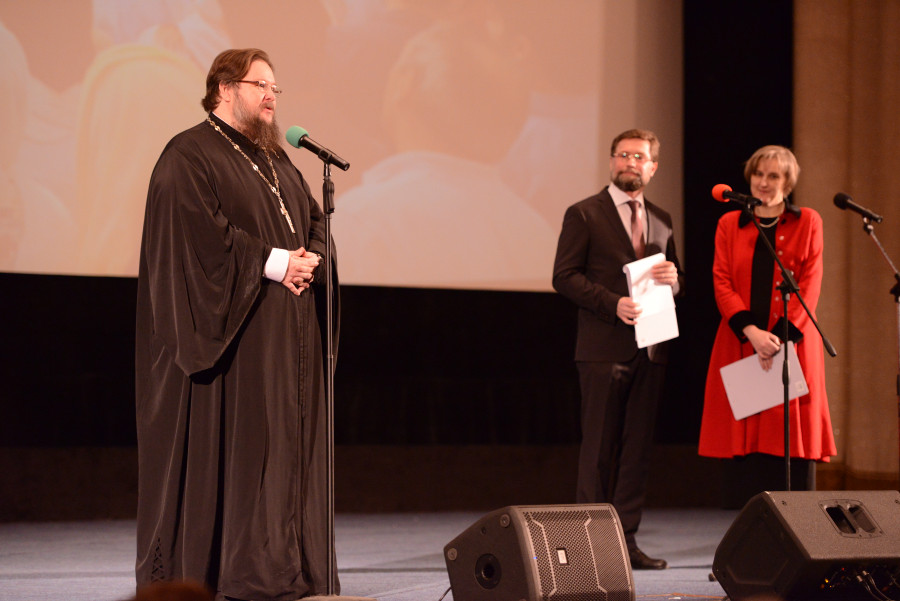
Archpriest Alexander Lavrin, Rector of the Church of the Life-Giving Spring Icon of the Theotokos in Tsaritsyno, said that he was touched by the film and called it a testimony of life in community, though he observed that the film does not provide an answer on the question of how to build community. It’s no secret that most people coming into the church today have a godless and utterly divided life in their background. Therefore, their biggest challenge is to begin to live together, in community.
“The main impression one gets from the film is that all the members of the Transfiguration Brotherhood are rich. They are rich in each other. We could see this in their eyes – which are the most expressive aspect of the film. They live through each other because they are gathered together by Christ in the Eucharist. All these different people somehow live together – this is an amazing thing in today’s world”.
According to Archpriest Alexander Lavrin, as many people as possible should watch the film and express their opinions.
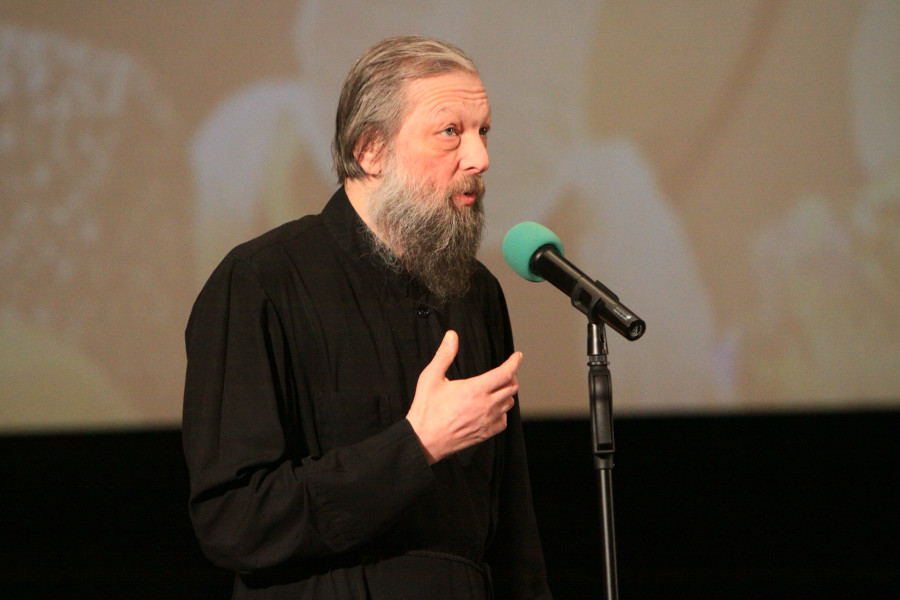
Sergey Burlaka, Assistant to the SFI Rector and a member of the Brotherhood, also shared his impressions about the documentary in which he himself appeared. He believes the film is a good opportunity for the Brotherhood to look at itself from an outside-in perspective. Moreover, he said, one invaluable feature of the documentary is that it does not evaluate brotherhood life but leaves the viewer to make his own judgments.
“I really wish that after watching this film people would recall what they’ve seen and recognize that experience of brotherhood to which everyone really aspires. I pray that people will want to bring this experience into their own lives – into the places where they study, work, eat, sleep and pray,” said Burlaka.
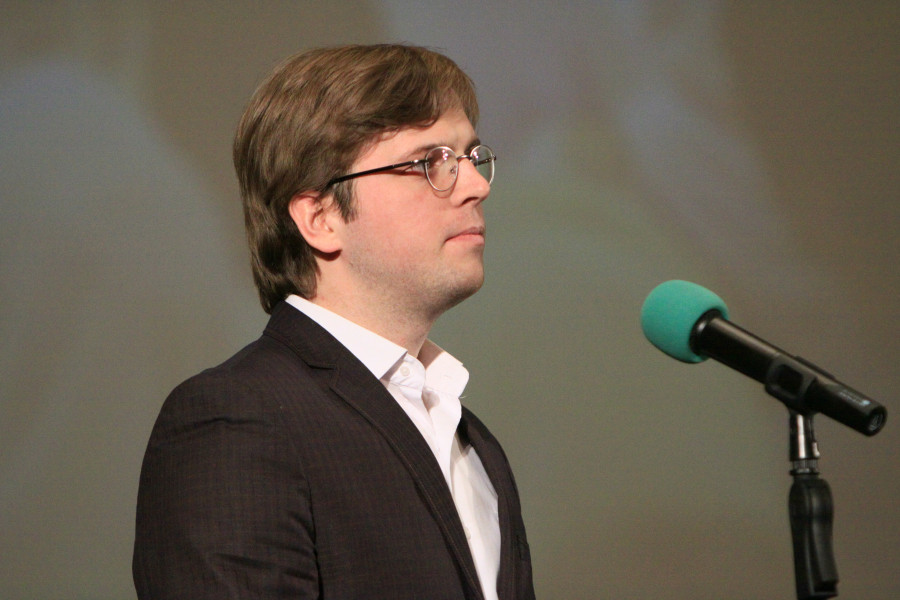
At the end of the evening, Fr Georgy Kochetkov presented commemorative medals, issued on the occasion of the 25th anniversary of the Transfiguration Brotherhood, to Director Alexander Gutman and all the members of his team.
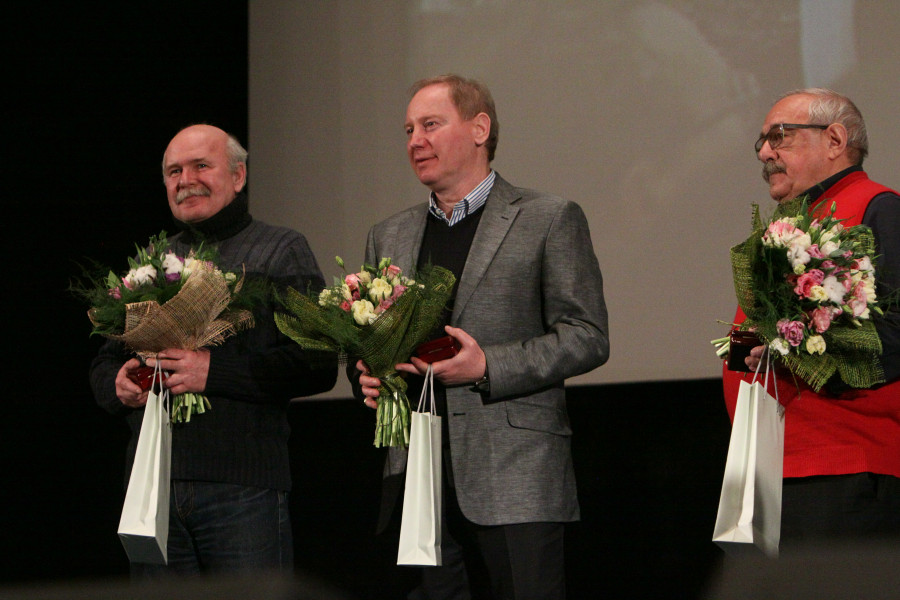
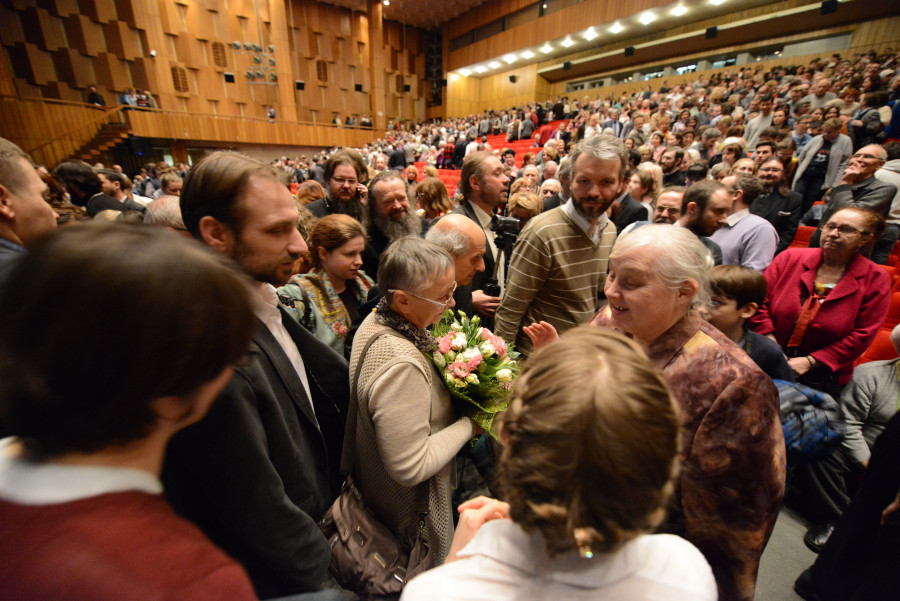
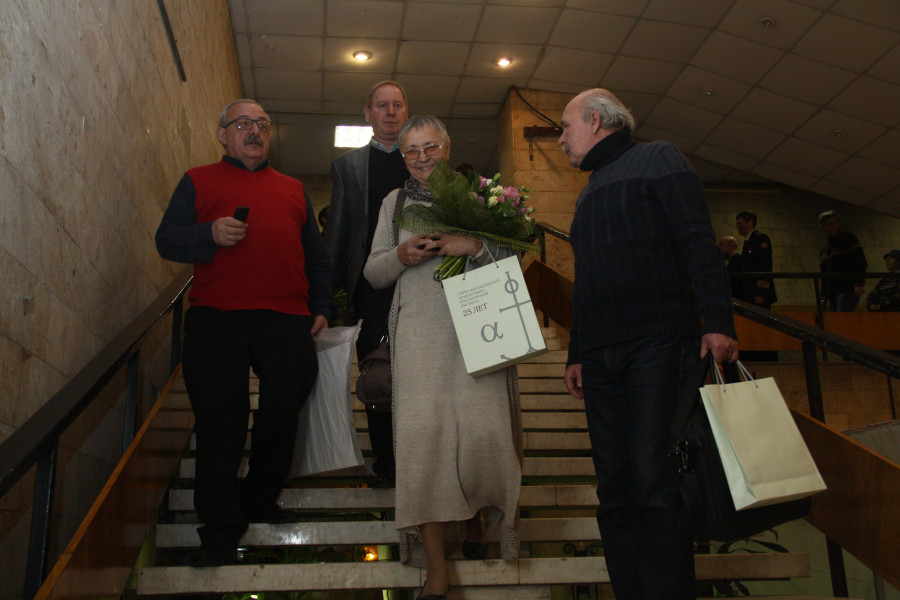
The film’s premiere at the House of Cinema drew a crowd of over 1100 people. After showings in St. Petersburg and other cities, the film will be available on the Internet.
***
Other guests also shared their impressions:
Anatoly Krasikov, Political scientist, expert in Religious Studies and Director of the Center for Social and Religious Studies of the Institute of Europe at the Russian Academy of Sciences: “I watched the film and remembered that a little less than twenty years ago a small group of specialists on church-state relations was invited to a conference organised in London by the Archbishop of Canterbury. There we went to a service led by Metropolitan Anthony of Sourozh. I was greatly impressed by the service and by the relationships between people that I saw there. I notice that same quality of relationship between the characters in this film. To that extent, the Brotherhood is doing the same thing which was Metropolitan Anthony’s lifetime work.”
Maria Shmayina, Archpriest Ilya Shmayin’s widow: “All the time I wanted to ask the members of the Brotherhood here present whether they realise how much happiness has been given to them. Long ago, in the early 1960s, we dreamt passionately of communal life and tried to create it. It was such an ordeal! Everything was secretive, dangerous, and falling apart before our very eyes. So when I was watching this film, all I could see was a miracle: riches, happiness and fulfillment. I could not even imagine that what I was seeing could be true. I’m an archaeologist by profession, and I have been interested in and read a great deal about ethnography. The academic literature argues very convincing that community is impossible here on earth and has a maximum existence of two to three years, at which point it either stagnates or turns into an organization or falls apart. But one could say that the people in this film are primary witnesses to the fact that this is not the case.”
Vitaly Shentalinsky, writer and public figure: “To me, the church was also separated by a wall of bureaucracy and history, not always very pleasant and alienated from man. I lacked warmth in my life, and in the Brotherhood I have seen a unity of light and warmth. It is the Brotherhood in which I have seen the true church, the authentic church.”
